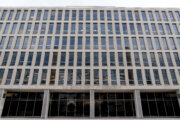HARARE, Zimbabwe (AP) — African leaders will meet in Zimbabwe on Saturday for a scheduled summit of the 16-nation Southern African Development Community that may discuss the rising issue of mpox outbreaks across the continent but is less likely to tackle international concerns about the human rights record of its host.
This week, the World Health Organization declared the mpox outbreaks in Africa a global health emergency. The SADC region includes Congo, which has more than 90% of mpox cases. Mpox has been present in central and West Africa for years, but it has been detected in more than a dozen African countries this year, including some where it was never previously reported.
Scientists have also identified a new form of mpox in Congo that might be more infectious. WHO raised concerns it might start to spill over international borders, and Sweden has reported its first case of the new variant.
South Africa’s Democratic Alliance party, which is part of the coalition government, has urged South African delegates at the SADC summit to raise the issue of mpox. South Africa and other southern African nations have reported only a few cases, but the Democratic Alliance said Congo’s large outbreak “shows just how fast the situation can change.”
As heads of state or their representatives began arriving for the summit in the Zimbabwean capital, Harare, there was criticism from United Nations human rights figures and other groups over an alleged political crackdown by the government of Zimbabwe, where more than 160 activists and opposition members have been arrested in recent months.
On Thursday, the U.N.’s human rights office released a statement on behalf of a range of experts calling for the release of dozens of activists and opposition members who have been jailed.
The statement said three activists who were removed from a plane and arrested by Zimbabwean security forces late last month “were reportedly subjected to enforced disappearance, torture and other cruel, inhuman or degrading treatment or punishment, including waterboarding.”
According to Amnesty International and Human Rights Watch, over 160 activists have been arrested recently. Many, including a mother and her 1-year-old baby, have been held in pretrial detention for weeks.
Zimbabwe’s president, Emmerson Mnangagwa, is set to take over the rotational leadership of SADC, but there has been little diplomatic pressure on the 81-year-old’s administration from neighbors in SADC, even though rights groups have alleged he has overseen a crackdown before and since last year’s presidential election, where he was reelected for a second term.
Ahead of Saturday’s summit, Zimbabwe has paved over damaged and potholed roads, planted palm trees along highways and even promised uninterrupted electricity and water supplies for delegates, while Zimbabweans are often hit by blackouts and water cuts. Analysts doubt that regional leaders will step up and use this summit to caution Zimbabwe over its rights record.
“They avoid the difficult issues,” said Antony Reeler, a Zimbabwean researcher and political analyst.
___
AP Africa news: https://apnews.com/hub/africa
Copyright © 2025 The Associated Press. All rights reserved. This material may not be published, broadcast, written or redistributed.





